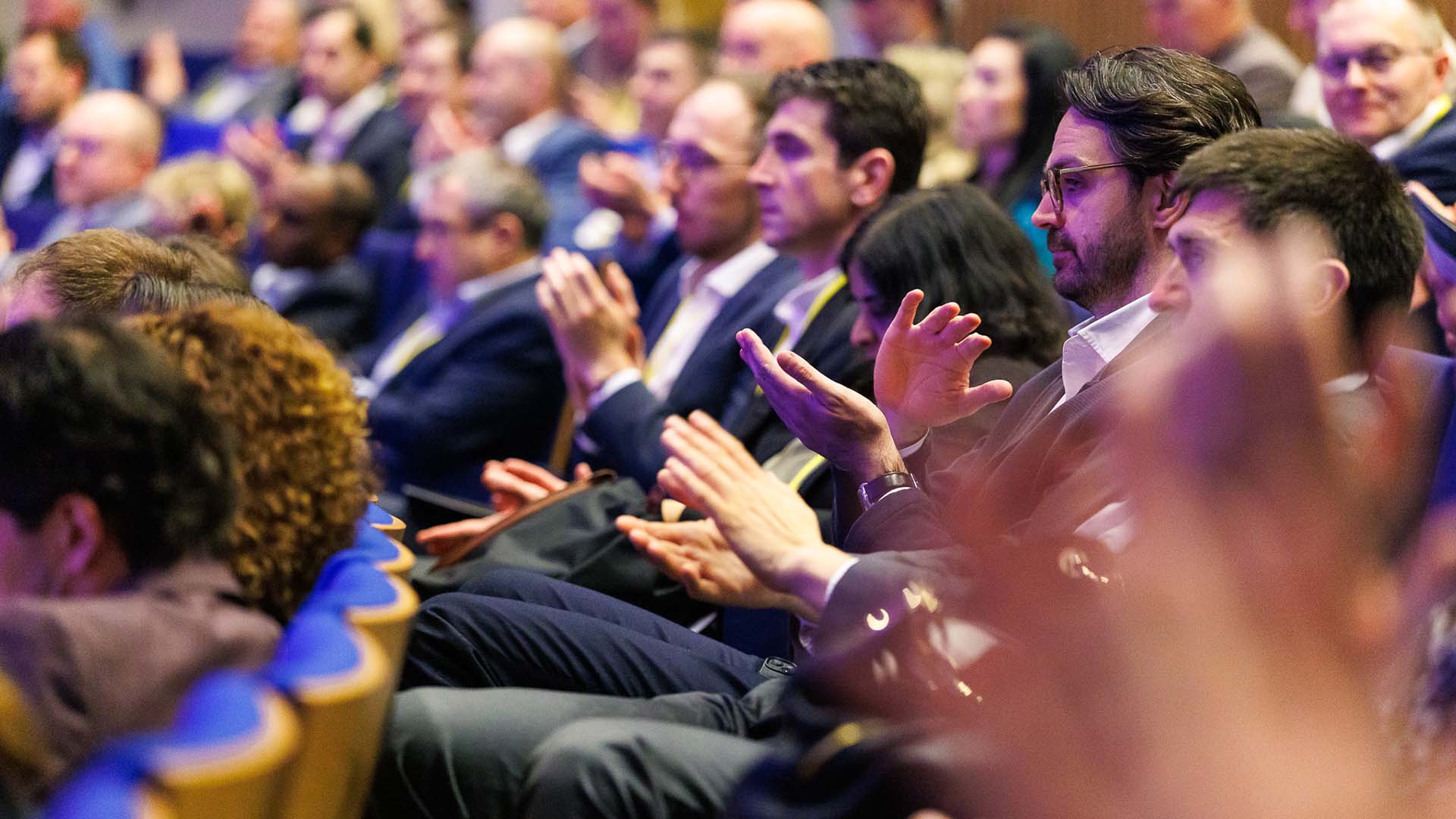
"The VDT Risk Day is offering its members a face-to-face event that fulfils the VDT's objectives: in-depth discussions on content as well as intensive networking," said Carsten Linker, VDT Board of Risk Management, while opening the agenda for the event, which was held on 23 March 2022 at Deutsche Bank Park in Frankfurt am Main.
To start the day, the inspiring success story of 360T took the audience 20 years into the past. Carlo Kölzer, CEO, 360T, which is part of Deutsche Börse Group, spoke of the beginnings of an ingenious idea in the electronic support of FX trading. It was the tale of a start-up when the challenge was to become the first really big fintech in Germany – long time before the term ‘fintech’ was coined in a “wave of digitalisation"...
Kölzer created electronic trading platform “in his garage” with simple technical equipment, but with incentive, persuasion, sales talent and perseverance he "convinced" the first corporates as well as banks to trade. After the first trade was set, the pioneer idea developed into a platform with 134 customers in 2005 and thus into a technical solution that would be unthinkable to be without today. In 2022, there are already 2,300 customers with 50,000 tickets per day globally with business transactions via 360T.
His presentation also highlighted the entrepreneurial spirit needed to build a new, norm-changing business against the resistance to alter an existing financial system. The required skills of the entrepreneur became clear, and also the importance of early adopters. But, perhaps even more than that, the significance of the negotiating skills required to demonstrate to the corporates involved in the initial negotiations with the banks were underlined. Kölzer had to be able to illustrate the competitive advantage of his game-changing idea.
After the concluding Q&A with Kölzer, the Risk Day participants prepared themselves for the four workshops as well as for networking opportunities.
During the workshop entitled "Making Interest Rate Risk Management Tangible", participants were invited to exchange ideas on the areas of risk identification and quantification; management and hedging; and reporting and performance. Thanks to participants' different backgrounds, a variety of perspectives on the topic of interest rate management emerged during the discussions.
The workshop "Commodity Risk – Quo Vadis" gave an up-to-date overview of current developments in the market, which illustrated distortions due to the Ukraine crisis. The workshop also endeavoured to offer a forecast as to what could be expected as a result – of course with all the uncertainties as we know them in risk management. Particularly interesting was the presentation by Thomas Goerdt (Group Treasury, Aurubis), who gave an insight into how the handles the hedging of commodity risks. The subsequent discussions showed that commodity risk is still a topic that affects many companies and should not be underestimated.
True to the workshop title "Currency Management in Changing Times", there were four sessions, based on an introductory keynote speech, in which experiences and current developments were lively discussed in the framework of a panel discussion. The exchange took place along the classic risk management process on practical experiences, aspects of digitalisation, as well as potential challenges and obstacles regarding future development. The topics of automation and precision of exposure determination, use of trading platforms, and the necessity of performance measurement as an integral part of the defined and implemented currency management strategy were a particular focus of the discussions.
During the workshop entitled "Credit Risk – Efficient and Needs-Based Management of Risks in International Trade in Goods", participants discussed in three groups the options of terminating or optimising a credit insurance programme, as well as a hybrid model. Afterwards, the individual groups presented their results to the plenary. Overall, counterparty risk management still seemed to be a marginal topic for many treasurers. However, the pandemic has shown that many topics can quickly come into focus, and so this risk should also be actively managed and evaluated, and a credit insurer, for example, should be consciously integrated into an existing bank communication.
After all the workshops, concluding panel discussion was held. Desirée Buchholz (Digital Editorial Marketing Manager, Deutsche Bank) welcomed Hans-Jörg Mast (Senior Vice President Corporate Finance, CLAAS KGaA GmbH and member of the VDT Board of Directors) were among the panellists.
The topic of the panel was the consolidation of the results of the workshops into a holistic financial view of risk management. To this end, Buchholz began by discussing with the speakers the challenges arising from the current crises, such as the pandemic and the war in Ukraine. Further discussions focused on interdependencies, integrated management, and digitalisation in financial risk management.
At the end of the event, attendees enjoyed a tour of the stadium and had more opportunities for networking.
Verband Deutscher Treasurer (VDT e.V., Association of German Treasurers).

The CEE 2025 Treasury Forum, held in Cluj-Napoca, Romania, from 15 to 17 May, gathered financial leaders from across the central and eastern European region to explore the evolving role of treasurers in today’s complex economic environment.
Read
Founded by treasury practitioners, Baltrea is driven by a vision to foster excellence, encourage collaboration, and promote innovation within the treasury community.
Read
The 2025 annual EACT Summit, held in Brussels in April, served as a timely reminder that treasurers across the community possess an increasingly welcome voice in the face of adversity.
Read.png)
The survey aims to identify challenges corporate treasurers of MNCs are facing and the technological innovations they intend to implement. It also aims to recognize evolutions over time and after crises.
Read
The fourth edition of the publication, describes basic requirements and provides guidance on establishing and developing the treasury function.
Read